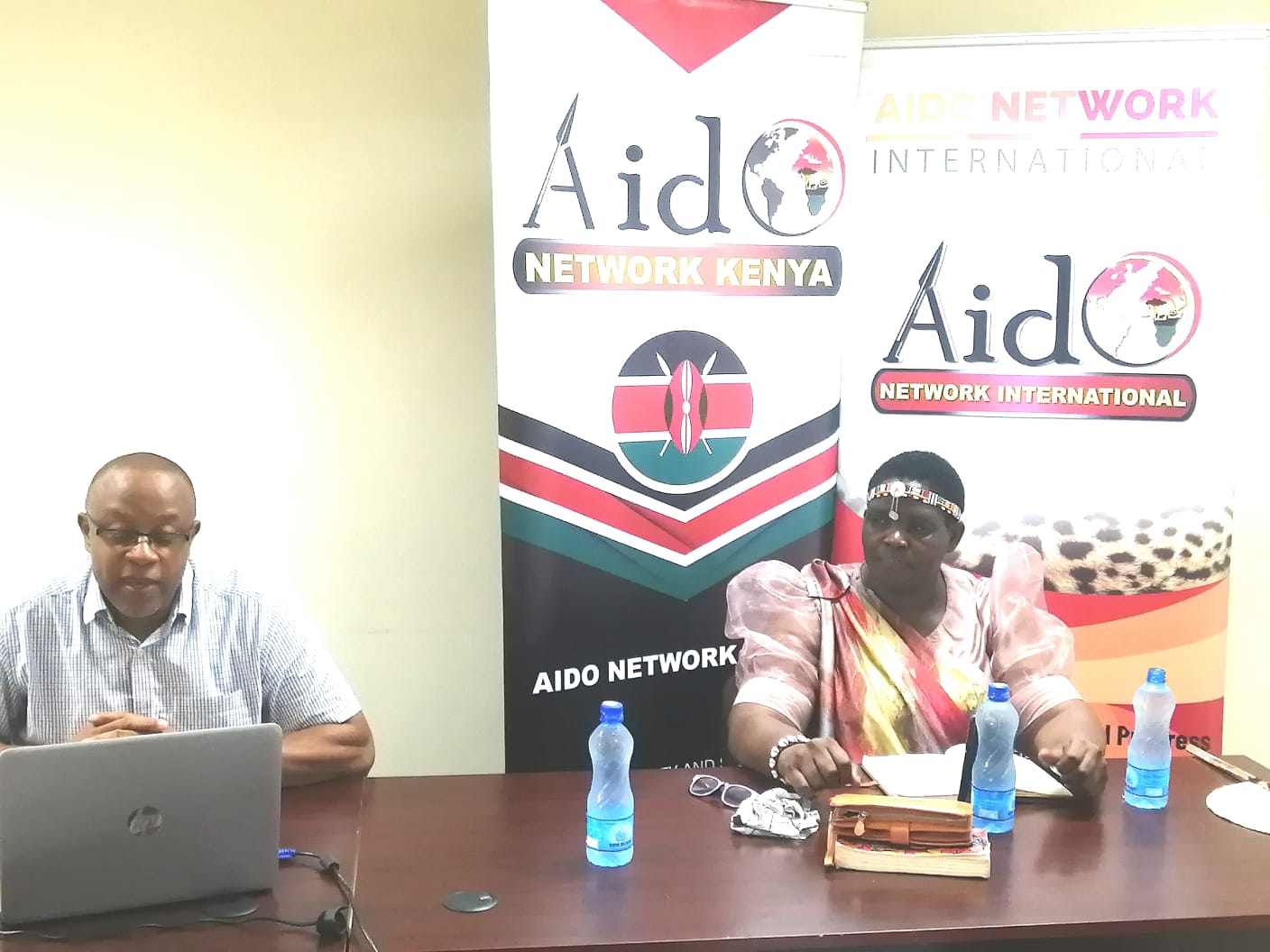AIDO SUPPORTS GROUNDBREAKING AFRICAN AND DIASPORA YOUTH PARTNERSHIP FOR REPARATIONS
February 2024
Students from Pwani University in Kenya, Ikemba Youth for Reparations based in Guyana and Africa Youth Forum International headquartered in Ghana are joining forces to step up strident advocacy for reparatory justice for Africans everywhere. The virtual meeting held on 1 February had its genesis in the recent visit by some members of the CARICOM Reparations Commission (CRC) to the Royal Nation of Pokomo Communities in Kenya in October of last year.
The meeting brought together over fifty vibrant youth from different parts of Africa and the Caribbean under the mentorship of members of the AIDO Royal Community, including His Highness Paul Jones Eganda, President of AIDO Network International; Dr. Hilary Brown or Queen Asianut Acom II, Chief Arley Gill and Queen Mother Dr. Chenzira Davis Kahina from the Caribbean; and Pwani University Dean School of Health and Human Sciences and King of the Royal Nation of Pokomo Communities, His Majesty Dr. Makorani a Mungase VII.
Central to the agenda was the involvement of youth in reparations advocacy, creating more awareness of why reparations is important, and mobilizing more youth and other communities to join the campaign for justice. The case being made by the CARICOM Reparations Commission, headed by leading reparations advocate Professor Sir Hilary Beckles or HRH Papa Osikol II, who is Vice Chancellor of the University of the West Indies, is for comprehensive repair and compensation for over 400 years of kidnapping and trafficking Africans to the Americas; subjecting them to the most brutal dehumanizing system of chattel enslavement and for the atrocities committed by European nations against Africa and her diaspora under colonialism.
“When we speak of reparations, we’re not asking for aid neither are we asking for charity, we are speaking about the repair which must be done by deposing who or what conducted and benefitted from the slave trade, slavery and vicious genocide,” remarked Chief Arley Gill, Chairman of the Grenada Reparations Committee. He highlighted that the profits of the free labour of enslaved Africans fuelled the industrial revolutions in Europe and helped to build that continent. He further pointed out that with the abolition of slavery in the British West Indies in 1834, the enslavers were compensated with Twenty Million Pounds Sterling (40% of the UK treasury at the time) and the former enslaved Africans received no compensation.
Mr Javan Makebo, Pwani University student added, “reparations is not a request, it is a demand. We are not asking the people who committed atrocities in Africa for an apology, it is a recognition of the atrocities that the colonial regimes did to Africa through slavery and colonialism.”
Ambassador Carlos Boakye from Africa Youth International in his presentation, highlighted the fact that many young people in Africa were still unaware of the reparations agenda, which needed to be addressed. He also emphasized the need to involve the people who are to repair the damage in the conversation. This was necessary, he said to gain a clear understanding of their views on the issue, and to ensure that the demands are met. “Are they ready to pay?” he asked.
Mr. Kibwe Copeland, President of Ikemba Youth for Reparations, emphasized the importance of educating young people on their history and the lasting impact of the legacies of slavery and colonialism. “We need to break it down, use poetry, drama, music and the arts to communicate the message of why reparations is important to us, so we can take on the mantle from those who have led the movement,” he said. Ikemba, meaning “strength of the people” was formed in 2017 in Guyana and has been actively engaged in public education and other initiatives in Guyana, Antigua and Barbuda, Trinidad and Tobago and Jamaica.
In an open dialogue session moderated by Mr. Copeland, the youth discussed a number of initiatives to move the reparations agenda forward. Among the key recommendations made was to mount a global campaign where the message of reparations is shared far and wide through different platforms on social media, through podcasts, and by organizing frequent capacity building sessions through the universities. The use of the arts and indigenous knowledge would also be impactful.
A small team from the three youth organisations would spearhead the development of an action agenda and work plan which would be followed by periodic meetings. There was agreement that one of the priorities should be the return of stolen cultural property to several African nations. Youth from AIDO South Africa and the Virgin Islands Advocacy Coalition also contributed to the discussion.
Pwani University, Ikemba, and AIDO Network International will also seek to advance initiatives like the proposal that was made to host a youth reparations conference in October at Pwani University and to provide a platform for youth advocacy during the annual AIDO Convention.
The forum was hosted by Pwani University Acting Vice Chancellor Professor Paul Mwashimba Guyo and was also attended by several faculty members.
Bessie Sarowiwa
Aido Network International, Kenya.
info@aidonetwork.org

